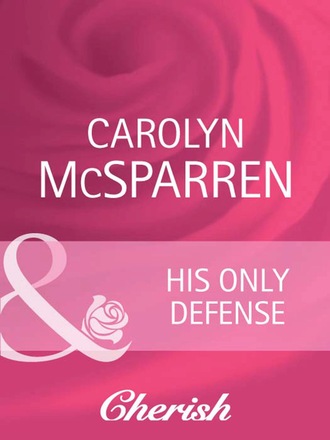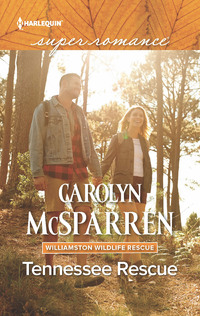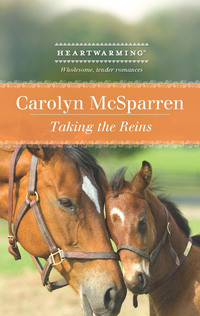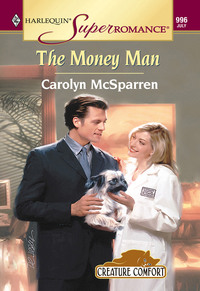
Полная версия
His Only Defense
“Because you are. Frankly, I think this one has gone as far as it will ever go, but I’ve had a call from upstairs asking us to take another look.” He grimaced. “As a favor to somebody important who shall remain nameless.”
She felt a tingle down her spine. “Political?”
“A friend of the commissioner wants us to look into it. I’m not going to tell you anything else except that it’s seven years old and a Shelby County homicide, or at least we think it’s a homicide.”
“Think? As in not sure?”
“Read the murder book. We had two of the best homicide detectives on it at the time. Both retired. One of them’s dead. It’s the kind of case where they knew in their gut what happened and who the doer was, but couldn’t prove it. Seven years later, someone may be willing to talk, or you may find some forensics that we missed. Frankly, I doubt it, but as the new kid on the block, you’re getting stuck with it. If you get nowhere, at least we can say we tried.”
“I get it. CYA.”
Gavigan grinned. “Right. Cover your ass. Think of this as a reward for finding Leroy.”
“Oscar Wilde said no good deed goes unpunished.”
“Not in this department,” Gavigan said, and waved a hand toward the box, dismissing her.
CHAPTER THREE
JUD SLAUGHTER POURED himself two fingers of Jack Daniel’s Black Label, dropped in a single cube of ice and waited until he’d settled into his elderly leather recliner in front of the fireplace to take a sip. If the November rain didn’t slack off, the construction site would be twenty acres of slop.
Fifteen days from today was the seventh anniversary of Sylvia’s death. It had been raining that night, too.
For seven years he’d held on to the fragile belief that Sylvia might be still alive somewhere, maybe amnesiac, but alive. Colleen swore her mother must be dead, for she would never have deserted her only daughter. Jud knew better. He’d simply never been able to figure out why Sylvia had left when she did.
He couldn’t see her walking away from a hefty divorce settlement, which is what she would have received if they’d gone through with the split. She would have demanded custody of Colleen, too, although he knew damn well having a child underfoot was the last thing she would have wanted.
She’d have used Colleen as leverage, so Jud would give her everything she asked for. Besides, her father, Herb, would never have understood Sylvia’s abandoning his granddaughter. Being Daddy’s girl was important to Sylvia. Herb was probably the only person in the world she actually cared about. She wanted his love, but she also wanted his respect.
Jud was taking a risk having Sylvia declared dead so that he could collect her insurance money. Even now, the cops might still charge him with her murder. Only the lack of a body had kept him from being arrested at the time she went missing.
For seven years he’d dreaded waking up to cops beating on his door, dragging him off in handcuffs in front of Colleen, because some hunter had discovered Sylvia’s bones in the woods.
He was still eighty percent certain his wife had run away to start a new life.
The remaining twenty percent kept him looking over his shoulder.
The cops had never believed in the stranger-killer theory. The homicide detectives were old-school. Anything happens to the wife, the husband probably did it. Jud had had motive, no alibi and the best opportunity to kill her and hide her body. There had been no evidence of anyone else at the scene, and random killers didn’t generally operate at night on a country road in a downpour.
He’d been forced to admit that when he was a boy, he’d hunted in the Putnam Woods Conservation Preserve, across the road from where Sylvia’s car had been found. He’d done so years before the owner died and left it to the state as protected wildlife habitat. Since then the trees had grown, and the undergrowth and marshes had changed the woods, but the fact that he’d once been familiar with it was enough for the detectives. One more nail in his coffin—or hers—as they’d told him repeatedly.
If she’d been dumped by someone unfamiliar with the area, she’d have been found by now, even if buried in a shallow grave. The detectives had warned him that bodies always surfaced sooner or later. They’d quickly declared him the only suspect, and had stopped looking for anyone else.
Jud was so lost in his thoughts, recalling the past, that he jumped when the telephone beside him rang. He cleared his throat and answered it.
“Daddy?”
He smiled, although he knew Colleen couldn’t see him. “You got me, sweetheart.”
“I just called to say good-night. Gran says she’ll pick me up after school tomorrow and take me to soccer, then drop me by your office afterward.”
“Thank her for me.”
“I will. Good night, Daddy. Oh, Gran wants to talk to you.”
He sighed. He wasn’t looking forward to this conversation.
“Jud, honey?”
“Why are you whispering, Irene?”
“I don’t want Herb or Colleen to hear me. That man Jenkins from the insurance company came to see me this morning. Thank God Herb wasn’t here. You’re really going ahead with it?”
“Trip’s already started the paperwork to have Sylvia declared dead. It’s time, Irene. I’m sorry if it upsets everyone. I can use the money to send Colleen to a good college. As it is, I barely keep up with her school tuition. An Ivy League college is out of the question, even with a partial scholarship.”
“I know it’s hard for you, but I do not like that Jenkins fellow. He acts as though it’s his own money. He as good as told me he was going to pull some strings and get the police to reopen the case.”
Jud heard the question mark behind that sentence. His mother-in-law was really asking whether he had anything to worry about. She swore she believed him when he told her he’d had nothing to do with Sylvia’s disappearance, but hearing Herb condemn him as a killer for seven years must have eroded her belief in his innocence at least a bit.
“It’s going to be hard on Colleen,” he said. “Everything dragged up all over again. When she was seven, she really didn’t understand what a divorce would have meant to her. If they reopen the case, her schoolmates will probably dredge up the story of the disappearing mother and the murderous father. I wish I could keep her wrapped in cotton, but it’s time to get it finished once and for all.”
“I’ll be here for Colleen, dear. And for you, too. I know what Sylvia was really like, even if Colleen and Herb don’t. I’ll pray for you.”
“Pray for all of us.”
After he hung up, he leaned back in his chair, took a long drink of his bourbon and closed his eyes. He’d lived carefully for seven years. Now he was about to take the biggest risk of his life. Only time would tell whether he’d made the right decision.
LIZ CLIMBED OUT of her Honda in front of the Weichert and Slaughter construction trailer and stepped into a cold mud puddle. She hadn’t seen it, given the late-afternoon shadows.
Great. You’d think a construction company would have enough leftover gravel to keep their parking area dry. Her boots were now covered with mud. Her black slacks were splashed, as well, and the darn things had to be dry-cleaned.
She left muddy footprints on the wooden stairs up to the trailer entrance, where an industrial rubber welcome mat lay. She scraped off as much muck as she could, and opened the door.
After staying up past midnight poring over the murder book, then spending most of today on the evidence box, Liz agreed with the two homicide detectives who had handled the case the first time. Jud Slaughter had gotten away with murder.
So far. That was about to change.
She’d hoped for a picture of Slaughter, but since he’d never been arrested, he hadn’t been photographed. He’d volunteered his prints and DNA at the time, but the only description she had was that he was a big man.
The previous afternoon Randy Railsback had brought her a cup of coffee, plunked his skinny butt down on the chair beside her desk and asked her to dinner. To discuss the case. Right. If Randy Randy continued to hit on her during office hours she was going to hit him upside his expensively coiffed head.
Since Randy had been riding a squad car seven years earlier, he knew no more than she did about the case. Jack Samuels, however, had wandered over when he’d heard them talking. “Slaughter looked like a jock,” he said. “Probably played college football. More than able to carry a hundred-twenty-pound corpse far back into those woods and dig a grave deep enough to keep the coyotes away. By now he’s probably got a beer gut, no hair and an ulcer. Murder’ll do that to you…if you have any conscience at all.”
So Liz expected to find a big man gone to seed. The only person in the trailer had his back to her. Broad back, broad shoulders. He was wearing chinos, muddy work boots and a down jacket, although the room was comfortably warm. She couldn’t tell about the gut.
He heard her come in, turned around and stood. “Hey, can I help you?” he asked.
No paunch! And not the least bit bald! No wonder Sylvia Slaughter had fallen for him. Most women would. He was not just big, he was immense, and good-looking in a craggy way. His nose had obviously been broken more than once. Jack said he’d played football, and Liz would bet he’d been a linebacker or a tackle. Running into him would be like hitting a marble column.
Yeah, he could carry a corpse a long way into the woods and dig a grave without breaking a sweat.
At five feet eleven inches, Liz didn’t look up to many men, but she had to tilt her head way back to stare into his guileless gray eyes. He had more than an adequate amount of sandy hair falling across his forehead. She knew from the file that he’d be thirty-nine. He’d been thirty-two when Sylvia died—disappeared.
Drat the man, he probably looked better now, with his sun-brown face and crinkly eyes, than he had then. Liz made a mental note to check for mistresses and girlfriends. No way this guy would be celibate for seven years.
“Mr. Slaughter, I’m Liz Gibson.” She showed him her shield, then shoved it back into the pocket of her blazer. “I’d like to talk to you about your wife.”
The start of a smile froze on Slaughter’s face. He sucked in a deep breath. “I wasn’t expecting to have somebody like you show up on my doorstep for a couple of weeks.”
“I beg your pardon? Why would you expect the police after seven years?”
He laughed, but there was no mirth in the sound. “Come on, Miz…Gibson, was it?”
She kept her face carefully blank. “Your wife’s case has never been closed, Mr. Slaughter. We revisit all open, uh, cases from time to time.” She’d nearly said “homicides.” Bad move. She’d have to watch her tongue around this guy.
“So there’s nothing suspicious about the timing? Give me a break.”
“I’m sorry. I’m not with you.”
“Look, Miz Gibson, I’m late for a meeting at the job site. Ride over with me, and we’ll talk.”
No way would she get into a car with this behemoth, be driven God knew where and left there while he met with one of his subcontractors. “This won’t take but a few minutes.”
He closed his eyes, whether in exasperation or acquiescence she couldn’t tell. When he opened them, he reached into his pocket, dialed his cell phone, turned his back on her and spoke quietly to whoever was on the other end, asking to put off the meeting.
He had a pleasant baritone voice. On the surface, he seemed like a nice man. But then most of the people she’d talked down from hostage situations had sounded nice and rational, until they lost it over whatever crime they felt had been perpetrated against them. Then they turned rabid in a nanosecond. This man was as much a wife killer as Bobby Joe Watson. Like Bobby Joe, he had a daughter who needed protection.
This guy wouldn’t get away with it.
He flipped the phone closed, stuck it into his pocket, pointed to an old wooden kitchen chair beside his desk and shucked his jacket.
Oh, definitely no paunch. The front of the guy’s plaid shirt slid straight under the waistband of his chinos, which slid straight down his flat belly until they hit a bulge at the crotch that looked proportional to the size of the man himself. She dragged her eyes back to his face and swallowed hard, then took the chair he offered her. He went around the desk and sat down.
“You can’t tell me this visit isn’t because of my petition to have Sylvia declared dead. I didn’t think the police worked for insurance companies.”
Damn! She’d been blindsided. But maybe Gavigan didn’t know, either. She’d have to find out who had pushed the higher-ups to reopen the case. “After saying for seven years that your wife disappeared, you suddenly want to have her declared dead. What changed your mind? And why now?” No way would she let him know this was the first she’d heard of it.
“Should I call my lawyer?”
Liz smiled her most ingratiating smile. Of course he should call his lawyer before he said another word, but that was the last thing she wanted him to do. “That’s your right, Mr. Slaughter. Do you need one at the moment? We’re just chatting here.”
He narrowed those gray eyes at her. They no longer seemed quite so guileless. In fact, they’d turned cold as glare ice. “Ask your questions. I’ll answer them or not.”
“Absolutely.” She had to remind herself he’d been through hours, days, weeks of interrogation. He knew the way things worked. But he’d been interrogated by a pair of old-line homicide bulls, never by a woman. “So, what did change your mind?”
“The law says that seven years is the legal waiting period to have someone declared dead. I’m sure you hear this a lot, but my family needs closure.”
“That’s the only reason? You have no new information?”
He sighed and rubbed his large tanned hand down his face. “As you know, Sylvia and I both had half-million-dollar whole life policies on one another. In Tennessee, murder kicks in the accidental death double indemnity clause. Meaning, instead of half a million, it pays out a million.”
“You’ve been looking at a million dollars in insurance for seven years?”
“Money I could not in good conscience request, so long as I felt certain Sylvia was alive somewhere. Now that it is legally appropriate to claim it for my family, however, we should be the ones to benefit by investing it. Believe me, the insurance company has been making plenty on it for the last seven years and is no doubt loath to give it up.”
“So you now believe your wife was murdered?”
“Let’s say I’m not certain any longer that she’s alive. None of the homicide investigators ever came up with evidence either way, although they continued to act as though they knew she was dead and I killed her. Sorry to say this, but once you people get an idea in your collective heads, it’s not easy to get it out.”
“Not without evidence to the contrary, it isn’t,” Liz said dryly. “When something bad happens to one spouse, the odds are extremely heavy that the surviving spouse is involved. The statistics would blow your mind.”
“I’m not a statistic and I’m not a murderer. When I started trying to make up my mind whether to petition to have her declared dead, I finally hired my own private detective.”
“Who?” There were a lot of good P.I.s in Memphis, but there were also some bums willing to take a client’s money for precious little labor.
“Frank LaPorte. He’s a retired cop. Handles mostly divorces and insurance claims. My business partner and I have used him to investigate a couple of worker’s comp suits. Both times he’s been able to disprove the disability claim. You shouldn’t be able to mow your lawn or reroof your house when you’re in bed with a bad back.”
“I’ll need to talk to him. What did he find?”
“He didn’t have any better luck. Not surprising after this length of time. He did say it’s not as easy disappearing into a new identity as it used to be before babies were given social security numbers in their first year, and birth certificates were collated with death certificates.”
“Still, it can be done.”
“With long-term planning. There’s no evidence that Sylvia had any intention of leaving when she did, nor that she had created a new identity.”
“Then you truly believe she’s dead?”
“I believe that if she didn’t die at the time she disappeared, she must have died now.”
“And you want that million dollars.”
“Miz Gibson, I build mansions and starter castles for rich folks, but I’m not rich. Contractors live at the whim of the housing market. We have construction loans to service, subcontractors to pay and materials to buy long before a house is built, and we keep paying until the house is sold, hopefully for a profit. When the market tanks, a lot of us go bankrupt. Besides, I have a fourteen-year-old daughter. She should have the benefit of that money, as well as the income it generates. Invested well, it should pay for her college by the time she’s eighteen, without using too much of the principal.”
“You don’t plan to take advantage of that money yourself?”
“If I’m lucky, I can survive without it, but good colleges are expensive and emergencies occur.”
“So you started the process to have your wife declared dead.”
“As I was legally entitled to do.”
“Even if it puts you under suspicion again?”
“Miss Gibson, I was never not under suspicion, as you well know. This just puts me back in your crosshairs. No doubt you’ve seen a copy of the paperwork. Has Jenkins been in touch with the police?”
She sat up. New name. “Jenkins? Should he have been?” Why tell Slaughter she had no idea who Jenkins was?
“My mother-in-law said he’d been to see her, and acted as though that money belonged to him and not the insurance company. He also said he was going to demand that the case be reopened.”
“That information hasn’t filtered down to my level yet,” she said. Nor was it likely to. It seemed a good bet that this Jenkins guy had called in a favor from the higher-ups to get the case reopened, but she’d probably never know for certain.
She was about to launch into questions about the night Sylvia disappeared when the door to the trailer burst open and a girl exploded into the room.
At least Liz assumed it was a girl. She was as tall as Liz and wore an incredibly muddy soccer uniform. Her shoes, face and long blond hair were caked with the stuff. Liz had played soccer in high school, before she discovered she was better at volleyball. This girl looked as though she’d slid face-first across a muddy field not once, but several times. She probably had.
She was long-legged and coltish, with that elegantly slim frame that drove designers to turn thirteen-year-olds into the latest high fashion models. No woman stayed that sleek once she reached eighteen or nineteen. At thirty-two, Liz definitely hadn’t.
“We won!” The girl flew across the room, arms outstretched.
“Whoa!” Slaughter laughed and held her at arm’s length.
This must be Colleen.
“I’m glad you won, sweetheart, but I don’t need half the soccer field all over this shirt.” He grinned at his daughter, his face glowing with delight.
Liz’s heart lurched. Could this guy really be a cold-blooded killer?
Yes indeed, he could. She’d known too many charming, lovable guys who disintegrated into dolts and oafs when the going got rough. Assuming they stuck around, which most of them didn’t.
Still, watching the big man and his tall daughter, Liz found herself praying that he wasn’t a killer, that she wouldn’t take him away from this child, destroy that smile.
But if he was a killer, she’d damn well do what she had to.
At that moment, Colleen realized there was somebody else in the room. “Oh,” she said, and turned to stare at Liz, assessing her from her muddy boots to the top of her head. She seemed to pay a great deal of attention to Liz’s left hand. Looking for a ring? Seeing if Liz was a possible rival for her dad’s attention?
Jud introduced them, but did not mention that Liz was a cop. She didn’t, either, but said to Slaughter, “I can see you’ve got your hands full.” She smiled at Colleen, who did not smile back. “How about we set up an appointment for tomorrow morning? What time would be convenient for you?”
The teen relaxed. She probably thought Liz was a prospective client.
A child who had lost one parent usually clung to the other and often acted as a protector—or a guard. Colleen had been seven when her mother disappeared, and wouldn’t have comprehended that her father was suspected of killing her. At fourteen, however, she must worry constantly that if new evidence surfaced, her father might be snatched away from her, too.
She wouldn’t be able to admit even to herself that she was afraid her father might have murdered her mother. Right now she seemed relaxed and happy, but she must be under an incredible strain. Liz would be willing to bet that both Colleen and her father tiptoed around the subject of Sylvia’s disappearance. All teenagers carried a load of angst, but Colleen must be carrying more than her share. Kids with much less on their plates turned to drugs or alcohol or sex—acting out what they dared not express. Tough on the kid, but equally tough on Slaughter, particularly if he knew he was a killer.
Talk about a dysfunctional family! Liz felt sorry for both of them.
“I start early,” Slaughter said. “I usually stop for breakfast around eight. Could you meet me at Lacy’s Café? We could talk while we eat.”
Actually, that would suit Liz just fine. She readily agreed, left Colleen to tell her father about the soccer game, climbed into her car and drove away.
At some point she’d have to interview the girl. By law Slaughter could elect to be with her during the interview, but kids never told the truth when their parents were listening to them. Was there any way to get her alone for an informal chat? Liz made a mental note to ask Jack Samuels what he’d recommend.
She wondered whether Randy Railsback would have more luck talking to Colleen. Much as she detested his macho-flirty attitude, she knew he could be charming and ingratiating, and might get more from the teen than Liz could. Obviously the girl regarded any female as a threat, not necessarily because of a dysfunctional attachment to her father, but because she considered him still married to her mother, and thus out of bounds.
Liz didn’t have to deal with Colleen today. Better deal with Slaughter first.
She’d also have to get around to that Jenkins guy. Since he didn’t seem anxious to pay Slaughter a flat million bucks, he must be keeping up the illusion that he believed Sylvia was still alive. He might, however, not believe that for a moment. He might even have evidence to support his view. Since a killer couldn’t profit from his crime, Jenkins might be equally happy to see Jud convicted of killing his wife. Liz should find out if the money would go to Colleen if her dad went to prison for murder.
While waiting at a red light, she added the name Jenkins to the list of people in her notebook. She’d also have to talk to the P.I. Frank LaPorte, and the people Sylvia had worked with….
Liz realized suddenly she’d been driving without paying much attention to where she was going. Now, she stepped on the gas. She would have just enough time before the early November dark to check out the crime scene, even though any evidence was seven years gone.
Slaughter was dangerous. Maybe not to everyone, but definitely to her, embodying most of the qualities in a man that attracted her.
Good dark chocolate was equally attractive and just as bad for her.
She would have to get to know Jud Slaughter intimately. But not that intimately. One did not get involved with suspects.
Before she’d seen him, she’d been certain he was a killer. Those gray eyes had not changed her mind.
Had they?
CHAPTER FOUR
JUD LEFT COLLEEN IMMERSED in math homework at the table while he cleaned up the kitchen after dinner.







